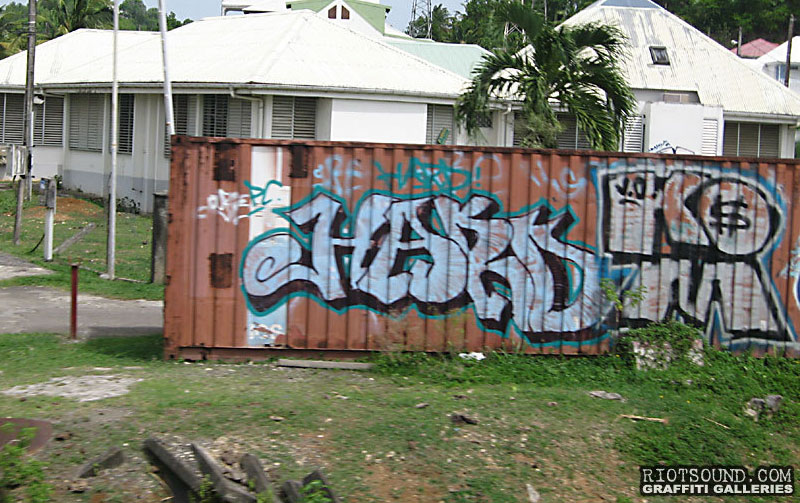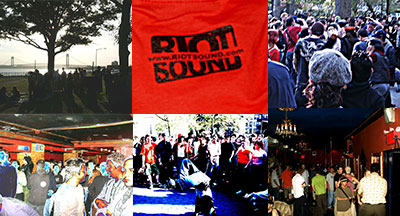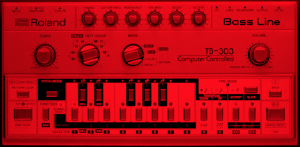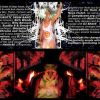by Alex Shtaerman
Spending the first part of his career as one third of the legendary rap group A Tribe Called Quest, Ali Shaheed Muhammad quickly regained his footing following Tribe’s 1998 breakup by collaborating with Raphael Saadiq (formerly Raphael Wiggins of Tony! Toni! Toné!) and Dawn Robinson (formerly of En-Vogue) to form the supergoup Lucy Pearl in late 1999. While earning a 2001 Grammy nomination, the creative union of Lucy Pearl would not last; the group would disband soon after releasing its critically acclaimed debut album. A four-time Grammy nominee; once with Lucy Pearl, twice with A Tribe Called Quest and once for works with D’ Angelo, in 2004 Ali Shaheed Muhammad is reintroducing himself to the world once again – this time as a solo artist.
With his solo debut Shaheedullah & Stereotypes, the Brooklyn bred DJ turned producer turned MC is poised to dispel any and all of our perceptions. “The title goes on me not wanting to be stereotyped from my past as just being a DJ or just being a jazzy Hip-Hop producer”, explains Muhammad. Known for his work behind the boards, Ali Shaheed steps behind the mic in a major role for the first time in his career, delivering a thoughtful and refreshing seventeen track narrative that stimulates the mind and establishes Muhammad as much more than just another “rapping producer”. “In the past when I have ever sat down to write something its always four lines and that’s it – and that would be my contribution to different artists that I’ve worked with when they needed some lyrics. But when it came to this project I sat down and just wrote song for song without there being any lack of finishing or running out of words and ideas”.
With appearances by Chip Fu (Fu-Shnickens), Stokely Williams and Chris Dave (Mint Condition), K Jay (The Foundation) and Sy Smith (Psychosoul / Star 69), Shaheedullah & Stereotypes is the first release on Ali Shaheed Muhammad’s new Garden Seeker Productions imprint. The label is slated to release material from Chip Fu, Sy Smith and K Jay in 2005 as well as more material from Muhammad, who is already in the studio working on his next album.
RIOTSOUND.COM: With Shaheedullah & Stereotypes being the first solo project of your career, what challenges did you face in making this album; also what were some of the motivations behind your solo debut?
ALI SHAHEED MUHAMMED: The only challenges I really found was when I was talking to different companies about putting the project out and because I have never been tested as a solo artist they were kind of unsure on how to move forward. But other than that as far as recording it, there were no challenges. There are many things that act as the drive behind recording a project; some of what I see image wise and content wise as far as what many rappers are talking about in their music is just so much one sided. The media doesn’t really shine any light on artists who have more of a positive message and a positive outlook on life and just different images that are somewhat more positive – bigger video channels don’t play videos like that. With this album I was trying to be me and at the same time put something more positive into the music.
RIOTSOUND.COM: Having been at the forefront of Hip-Hop and popular culture with A Tribe Called Quest, does it bother you now how many artists who have been so innovative in the past are locked out of mainstream distribution channels due to the ways in which the music industry has shifted?
ALI SHAHEED MUHAMMED: I don’t really get bothered by it, I just do what I have to do. You always put one foot forward no matter what the adversity is. We faced adversities in A Tribe Called Quest that people don’t know about. The popularity status of us – of course people know and they know that story but they don’t know the struggle it took for us to get to that point. So for me in my solo career I’m pretty much walking in the same footsteps as I have walked within A Tribe Called Quest.
RIOTSOUND.COM: What is the significance of the album’s name Shaheedullah & Stereotypes; does it have to do with you or is it also a reference to world events, or both?
ALI SHAHEED MUHAMMED: Shaheedullah means The Witness Of God and the name is more of a reference to me, it is where my middle name Shaheed comes from. Since I embarked on a solo career I wanted from the jump to put myself into it and just say that this title is about me. The stereotypes aspect of the title goes on me not wanting to be stereotyped from my past as just being a DJ or just being a jazzy Hip-Hop producer.
RIOTSOUND.COM: I read that you are on a government list where when you fly they have to call the FBI before they can let you board the airplane; why is the government targeting you?
ALI SHAHEED MUHAMMED: Because I have an Arabic name and right now anyone with an Arabic name in America is on the public enemy number one list. They try to say that my name is somewhat common as far as terrorists who are on the list that are wanted but that’s not really true.
RIOTSOUND.COM: You have a song on the new album called Elevated Orange; what’s the meaning behind that song?
ALI SHAHEED MUHAMMED: It is pretty much an ode to the politicians that govern our system. The title was taken from the terror alert system that we have in place in America. It was really me just saying let’s elevate our mind state and I address politicians like they were a b-boy – so it’s almost like a battle rap kind of a thing.
RIOTSOUND.COM: Is this album a stand alone project or is it a sign of more things to come?
ALI SHAHEED MUHAMMED: For me it’s almost a continuation of my entire musical journey. Ever since I came into the music industry I have been moving forward. It is certainly the first of, god willing, more to come. I am already working on my second album and trying to continue on just being a musician.
RIOTSOUND.COM: Why have you waited this long to be a force on the mic; did you do it now because of necessity or was it more of a natural evolution as an artist and musician?
ALI SHAHEED MUHAMMED: It was more of a natural evolution. It wasn’t anything that I wanted to do – it just kind of came as I sat down and I had this music and I knew that I wanted to make an album. In the past when I have ever sat down to write something its always four lines and that’s it – and that would be my contribution to different artists that I’ve worked with when they needed some lyrics. But when it came to this project I sat down and just wrote song for song without there being any lack of finishing or running out of words and ideas. It’s just the beginning stage for me; I know I am brand new to the microphone and there’s a lot that I have to learn but I’m embracing all of that and, god willing, I will improve and it will all be good.
RIOTSOUND.COM: Over the course of your career you have been nominated for four Grammy awards. Do you feel the Grammys have been fair to Hip-Hop music as far as the artists they have chosen to spotlight over the years?
ALI SHAHEED MUHAMMED: Has it been fair – hmmm, I don’t really know, I don’t even want to give it that much attention. It’s obviously based off of album sales and chart sales and there are so many different albums that are out there which are really good and better than what has been brought forth through the marketing tricks and marketing game and the excellence of a marketing and promotion plan. You really can’t compare when you have a great album that gets no shine to one that does and gets these nods.
I do understand how they operate and come to these decisions. You can even look at an artist like Ray Charles – in my opinion, had he not passed away his album may have not been nominated for record of the year. So that just clearly shows that it is based off record sales and not necessarily the quality of an album. I can’t really say if they’ve been fair or not, it’s just a different game and different politics.
RIOTSOUND.COM: Your album was released on Penalty Recordings, how did that come about? Also, what has the distribution and promotion been like?
ALI SHAHEED MUHAMMED: It’s been an interesting relationship. It was extremely positive bringing the project to Penalty and Ryco, they understood my vision and what I was trying to do with Garden Seeker Productions as a label and were supportive in trying to bring forth that vision. We’re still in the beginning stages; time will tell how things will pan out. As far as being in a big distribution system – it’s different being an independent, being completely responsible financially for your career and how you move forward. You are paying for things yourself, it brings new challenges every day but I embrace being in this situation and being in an independent distribution situation. I look forward to putting out more records and learning more from being not just a producer and DJ but running your own independent label and being responsible for that.
RIOTSOUND.COM: What artists do you plan to bring out through Garden Seeker Productions?
ALI SHAHEED MUHAMMED: Fortunately the artists who worked on the album with me and lent themselves to collaborate on Shaheedullah & Stereotypes have liked what I am trying to bring forth with Garden Seeker Productions as a label. Artists like Chip Fu, K Jay and Sy Smith are some of the artists that Garden Seeker Productions is working on right now. We hope to set off the New Year with their projects and putting out their records.
RIOTSOUND.COM: What should the fans be looking out for in the future?
ALI SHAHEED MUHAMMED: The Chip Fu album will be coming in 2005. The album from K Jay – that will be 2005, same thing with Sy Smith. There’s a Mint Condition album that’s coming out in 2005, so definitely look out for that. There’s an artist named Toshi, a Japanese artist – look out for him. Look out for Kamal’s (Q-Tip) next album, I don’t know what it’s titled yet but definitely keep your eyes and ears open for that. Also, Phife Dawg started a label called Smoking Needles and he and his partner Rasta Roots, they have several projects coming out so be sure to check for that.
RIOTSOUND.COM: As I am sure you know, fans argue all the time as far as what album is better or worse than the next album and so on. People often debate which Tribe album was the best one. From the artist’s standpoint, do you yourself have a favorite A Tribe Called Quest album or do you not ever think about it like that?
ALI SHAHEED MUHAMMED: I can’t really say I have a favorite, they all are meaningful and they were all different moments within my life, so they all hold a special place for me.
For official updates and info on Ali Shaheed Muhammad stay tuned to www.AliShaheed.com

































Comments